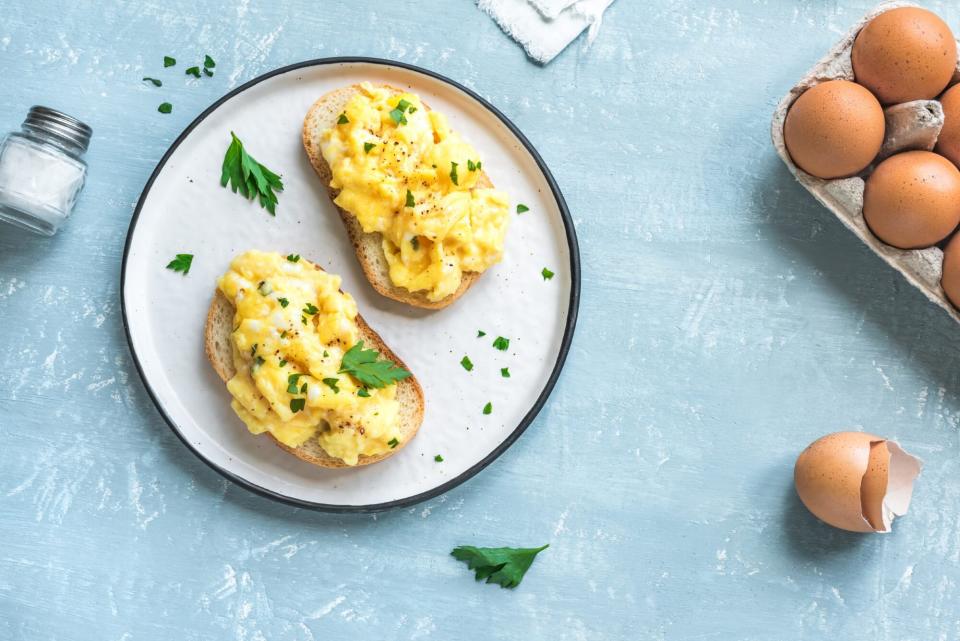Follow This Celeb Chef's Tip for Perfectly Fluffy Scrambled Eggs Every Time
Scrambled eggs are one of our favorite back-pocket breakfasts: The ingredients are always in the fridge, the kids love 'em, and they're a great source of protein. But just because they're easy to make doesn't mean there's no technique involved. Despite the fact that scrambled eggs are one of the quickest meals to make, many people still rush the process, which results in dry, firm curds. Eggs are surprisingly temperamental after all, and we all know there's a significant difference between a soft, fluffy pile of eggs and a sad skillet of rubbery, over-cooked curds.
If yours have been looking more like the latter, there's a simple reason why, and it's a mistake we've seen time and again: You're starting to scramble the eggs too soon and at too high of a heat. Don't rush the process, remember? It's the surest way to overcook them. This is why buffet-style scrambled eggs at hotels and conferences are often incredibly dry and tough—those poor eggs are sitting in that hot hotel pan cooking for hours on end.
Though it's tempting to start scrambling the eggs as soon as they hit the pan, the key to perfect eggs is letting them cook slowly—i.e., until they're beginning to set around the edges—before moving them around.

Getty Images
How to Make Scrambled Eggs, According to a Pro
"Just when those curds start to set, you just gently move them, and you end up with these big, fluffy, cloud-like curds," says Curtis Stone, a professional chef, cookbook author, and television personality. No matter how short on time you are, there is never a need for vigorous stirring. Instead, push them softly to the center of the pan with a rubber spatula, tilt the pan back so the uncooked eggs run back, and repeat until they're creamy and almost cooked through. You can also try adding a tablespoon of water to the bowl when you're whisking them before cooking for the fluffiest eggs ever.
"Then, once they're close to being cooked through, take the eggs off the heat. It's important to do this before they're fully finished cooking because they will continue to cook even once they're on the plate," Stone says. Keep the pan on a low heat throughout the entirety of the cooking process.
Feeling indulgent? Whisk a good dose of cream into the eggs before adding them to the pan—a luxurious version Stone calls his "weekend" scrambled eggs. And once you've mastered the art of scrambling, try upgrading your eggs with these delicious toppings.

